Last resort: emigration
The Joint Distribution Committee's report after the November Pogroms

-
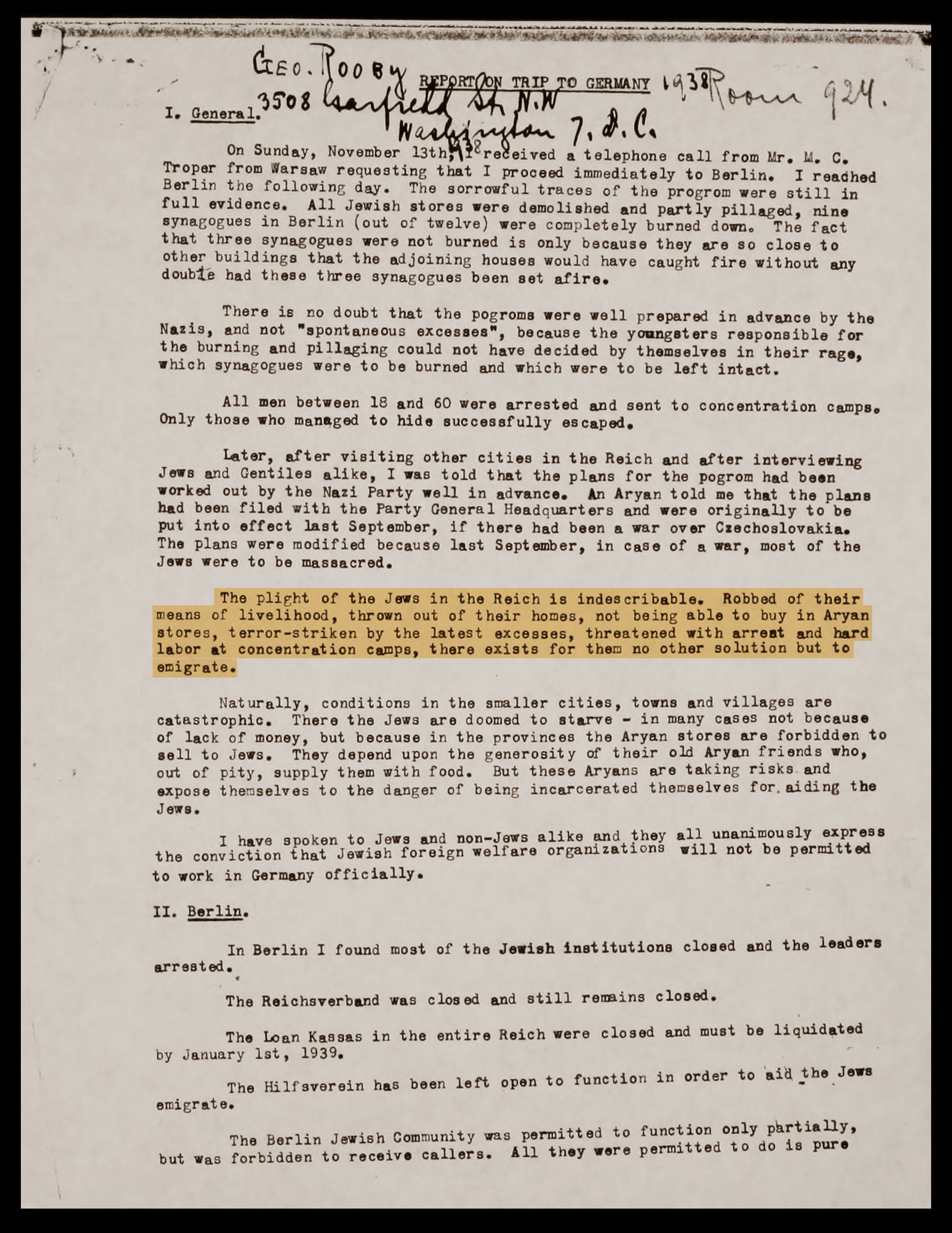
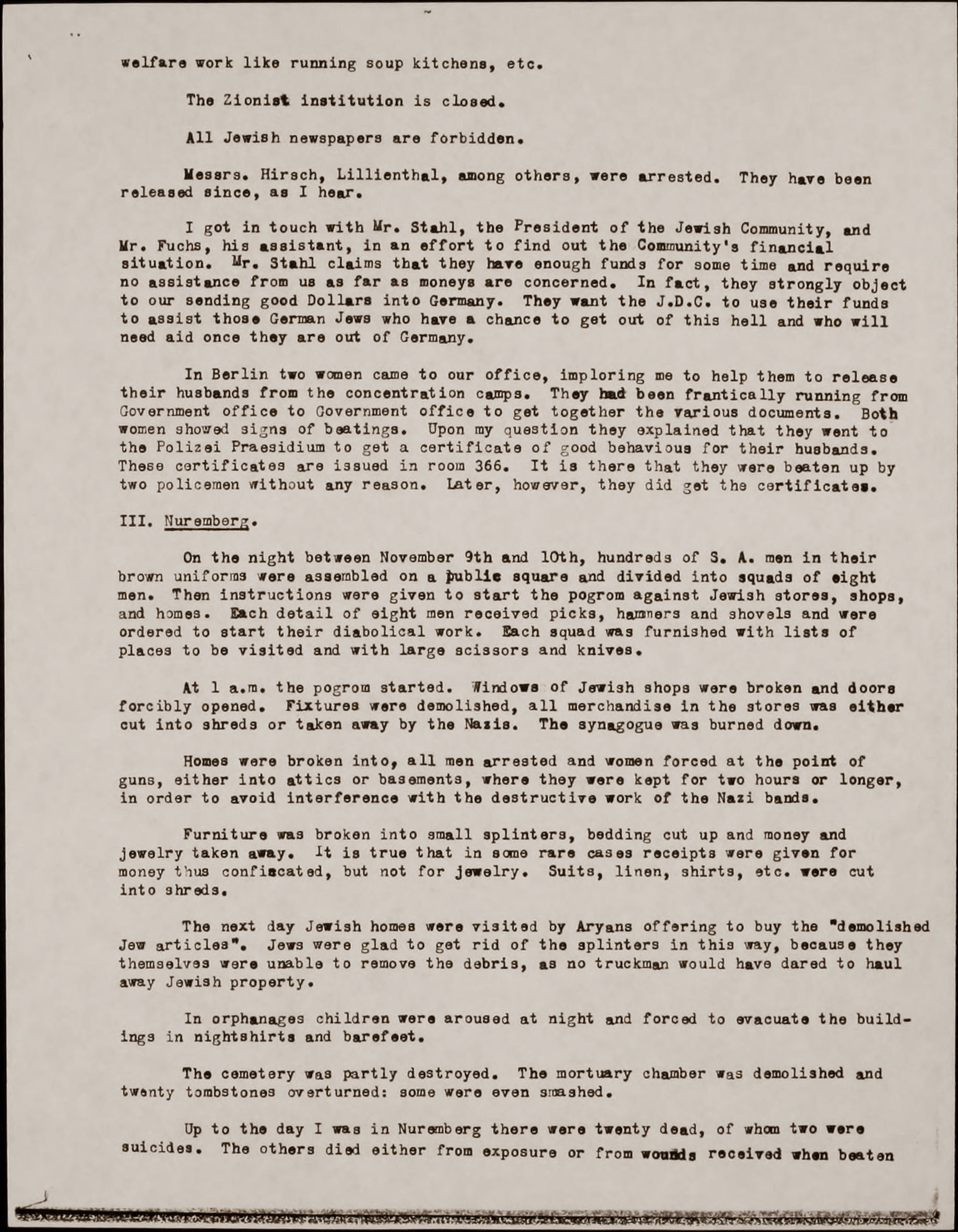
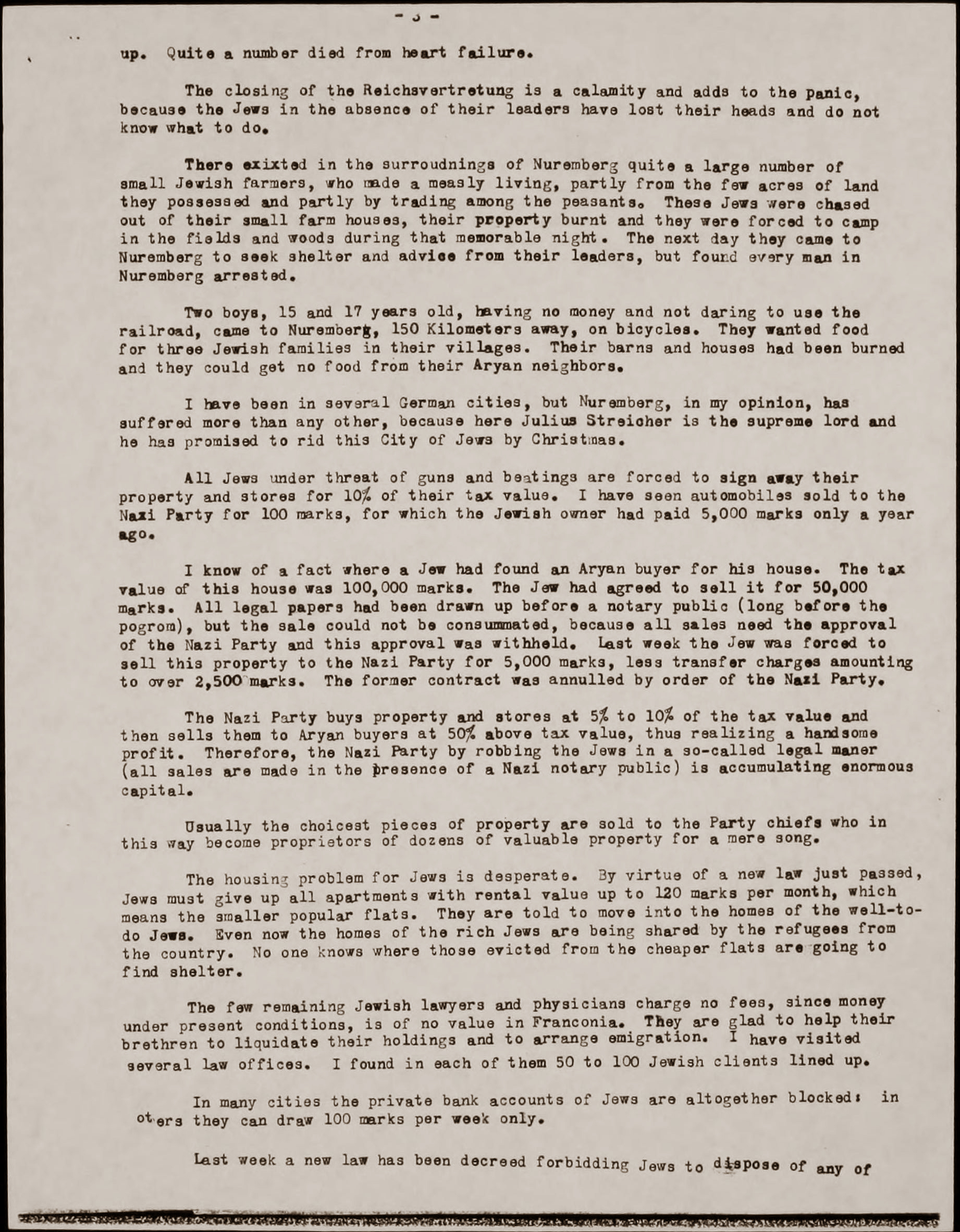
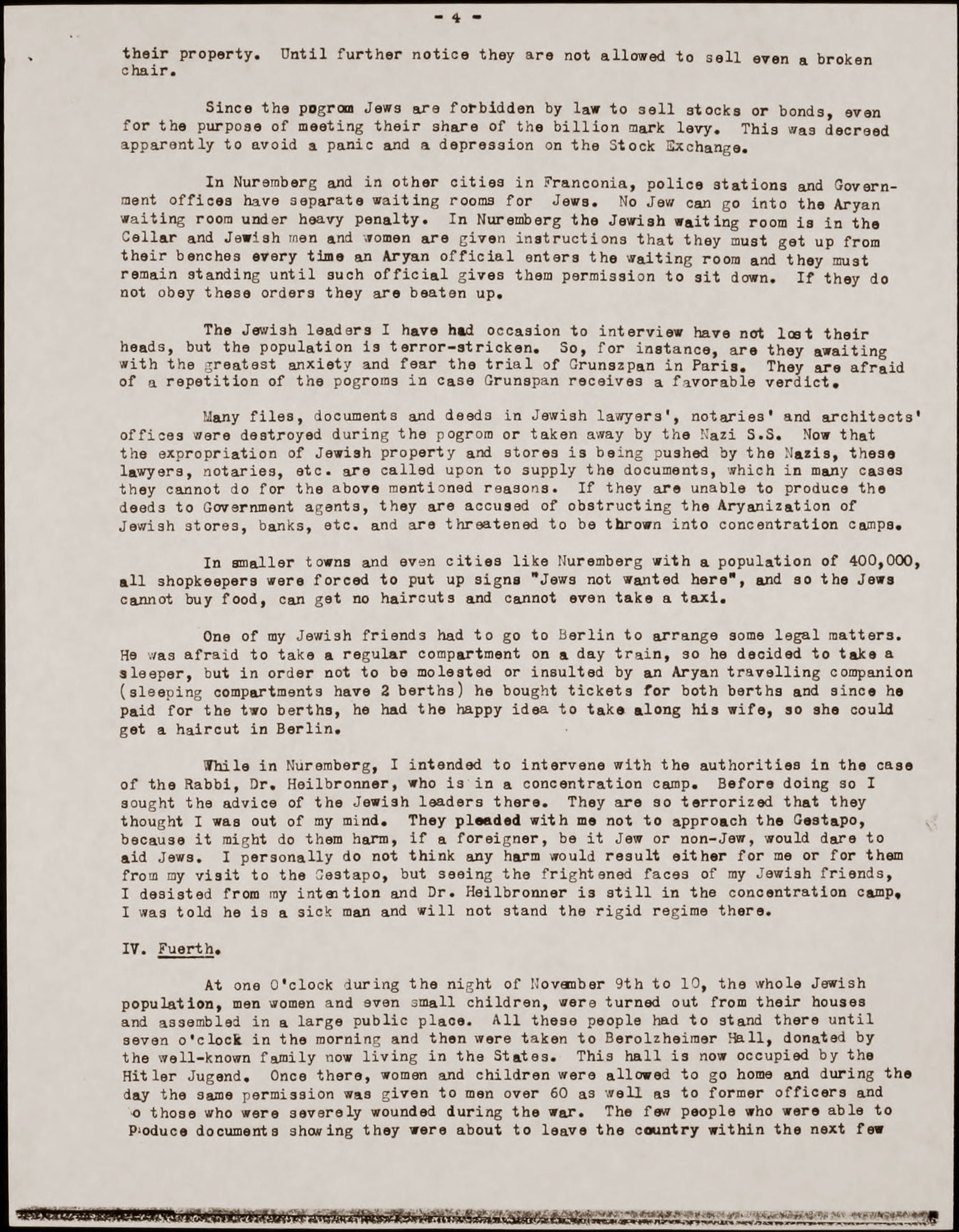
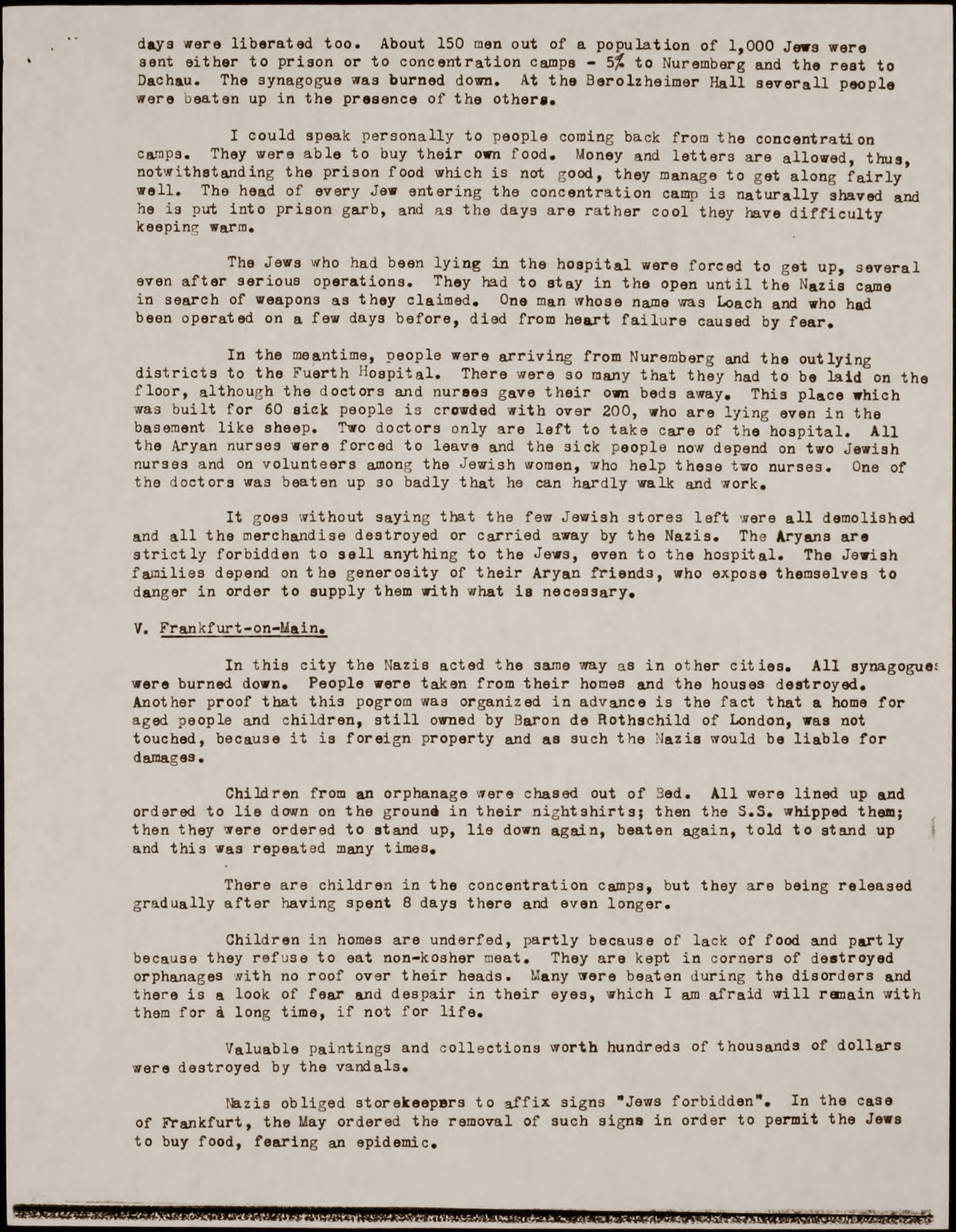
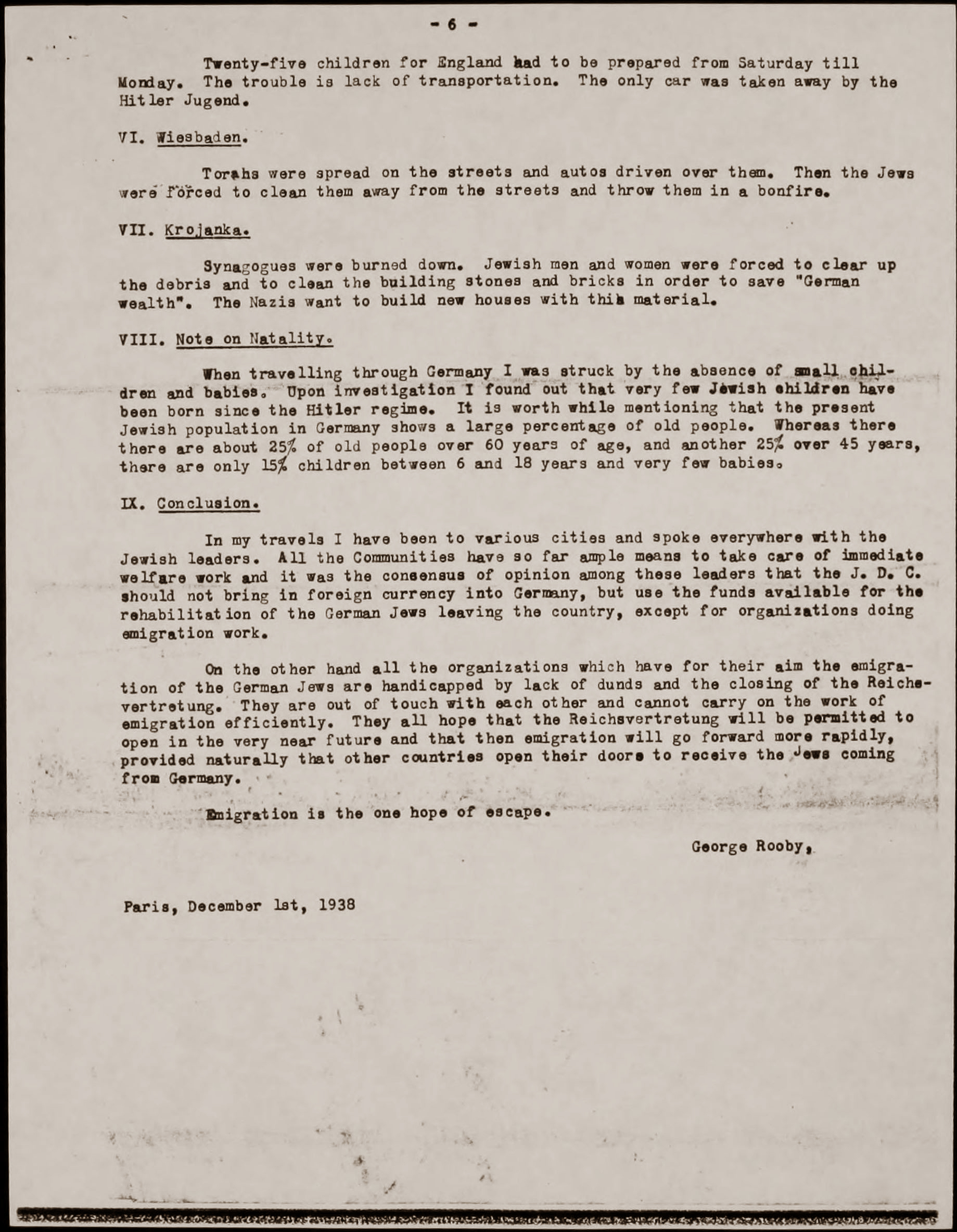
[original, p. 1] “The plight of the Jews in the Reich is indescribable. Robbed of their means of livelihood, thrown out of their homes, not being able to buy in Aryan stores, terror-striken [original spelling] by the latest excesses, threatened with arrest and hard labor at concentration camps, there exists for them no other solution but to emigrate.”
Berlin
Sent to take stock after the November Pogroms in Germany, the American Joint Distribution Committee’s emissary to Germany, George Rooby, traveled to several cities to collect first-hand impressions. His findings were deeply disturbing: Berlin, Nuremberg, Fürth, Frankfurt-on-Main, no matter where he went, he saw synagogues burnt down, Jewish shops demolished and ransacked, Torah scrolls desecrated, and was met by terror-stricken Jews whose leadership had been forbidden to operate or taken to concentration camps. Non-Jews extending a helping hand exposed themselves to the danger of Nazi reprisals. The almost complete absence of small children and babies was explained to Rooby as a result of the fact that nativity among Jews had receded considerably since the Nazis’ accession to power. Leaders of Jewish communities had assured him that there was enough money to cover immediate welfare needs. Those organizations, however, whose goal was to advance emigration, were facing a serious lack of funds. Generally, hope prevailed that the Reich Representation of Jews in Germany would soon be allowed to operate again and play its part in accelerating emigration. Its success, of course, depended on the willingness of other countries to receive German Jews. Rooby’s conclusion was unambiguous: the only hope to escape the violence was emigration.
SOURCE
Institution:
Leo Baeck Institute – New York | Berlin

Collection:
George Rooby Collection, AR 6550

Original:
Source available in English
on the days before



Curated by Leo Baeck Institute – New York | Berlin © 2018 Leo Baeck Institute
Website and exhibition design by C&G Partners









































